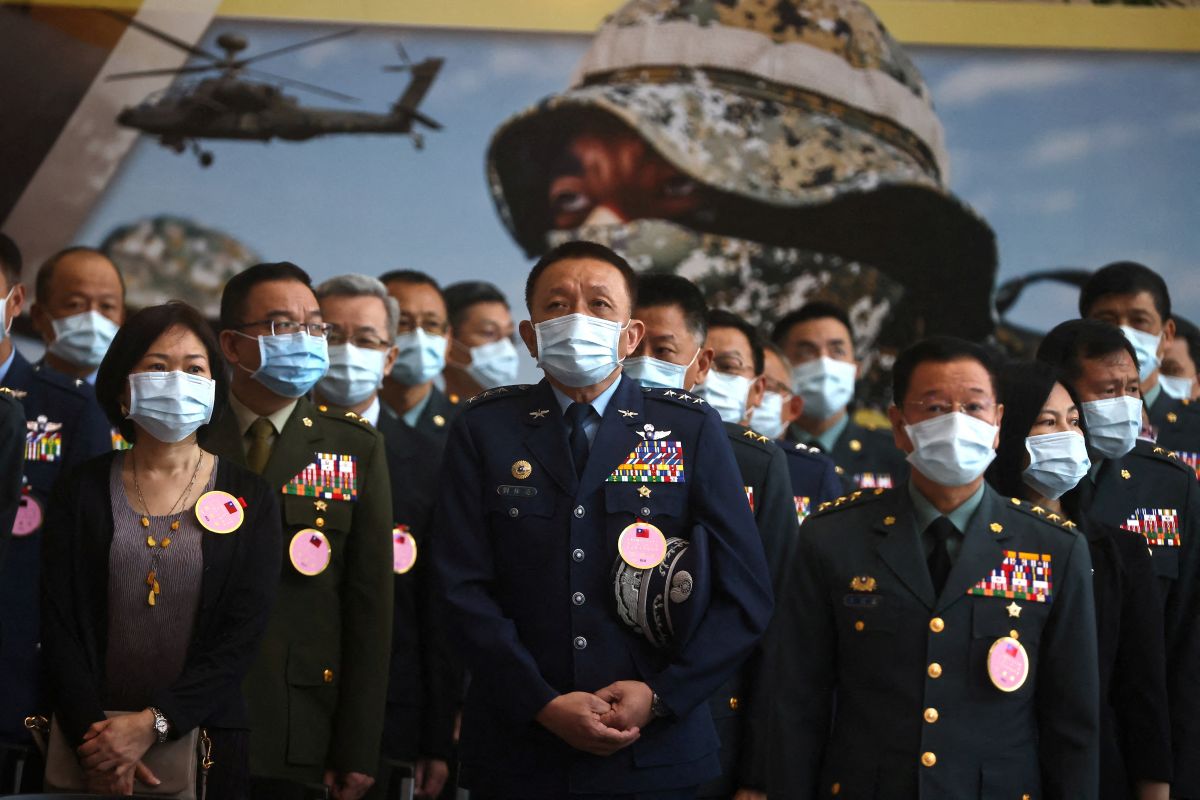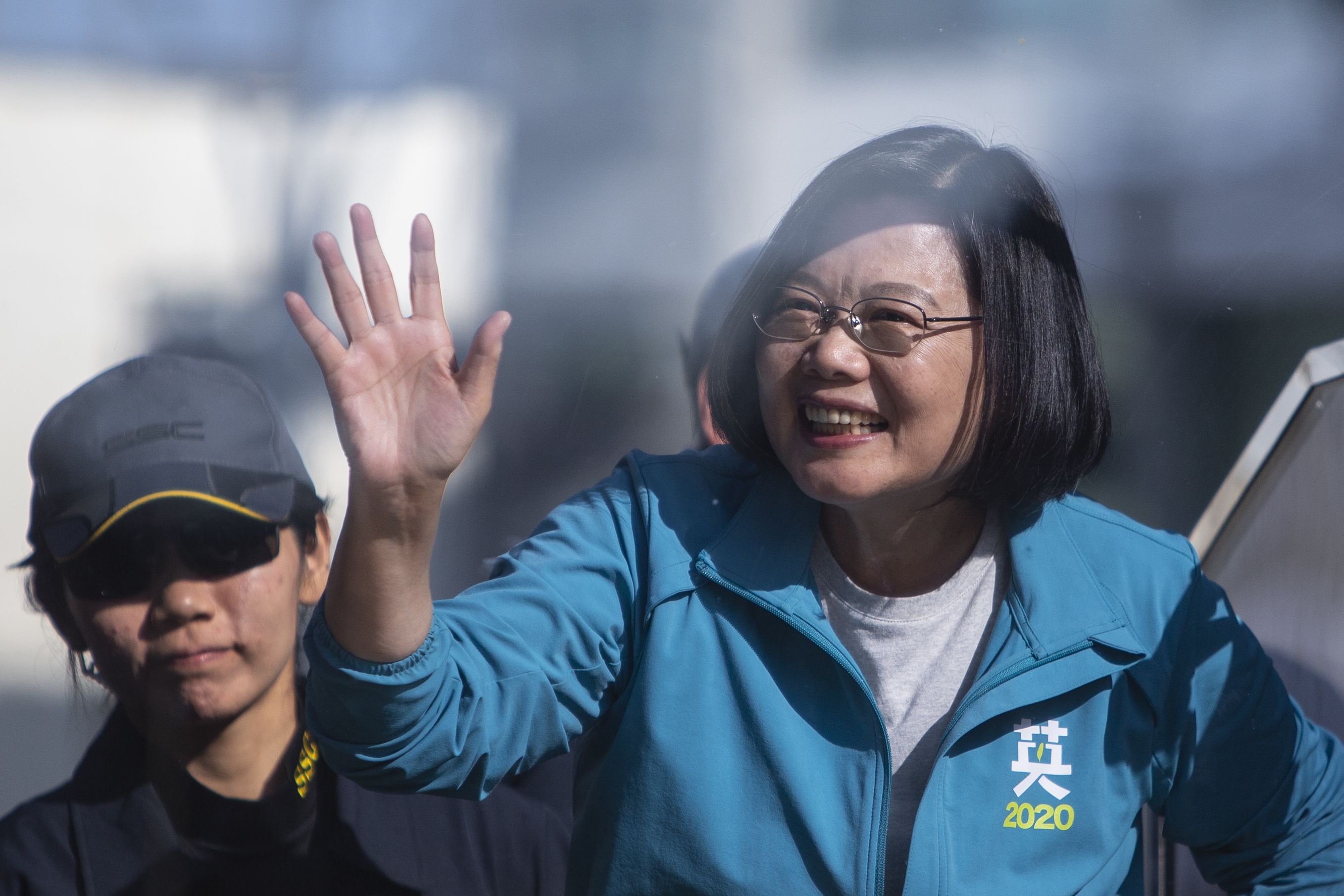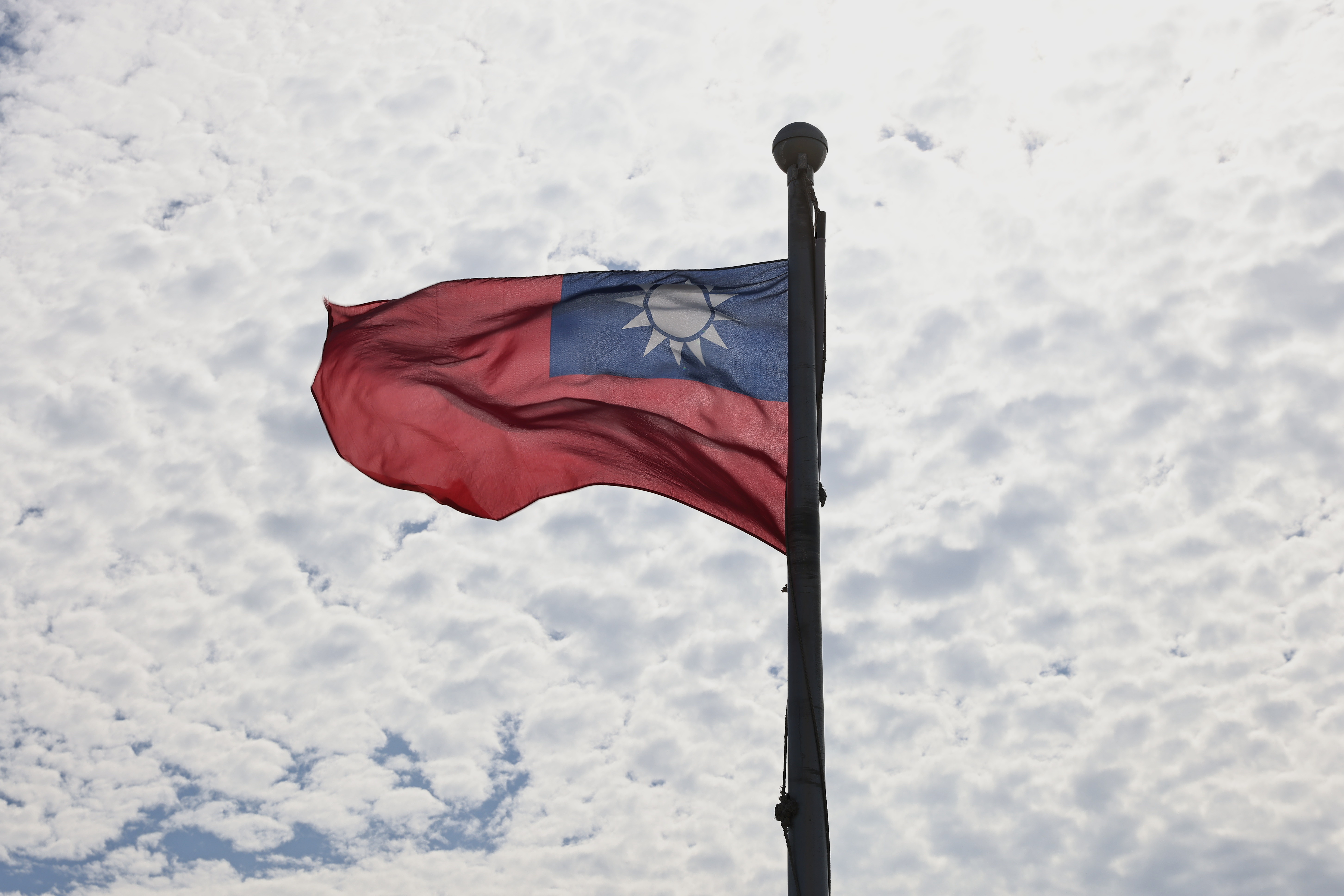Prospects of Conflict in the Taiwan Strait
The Russian aggression against Ukraine has intensified Taiwan’s preparations for a possible military attack by China, for which the annexation of the island remains a strategic goal. In the short term, aggression by China is unlikely, but according to the Taiwanese authorities, an invasion scenario is realistic within a few years. At the same time, the public’s faith in U.S. support in the event of a conflict is diminishing. In this situation, the EU should strengthen cooperation with the island, as well as prepare plans to respond to a possible attack on it by China.
 ANN WANG/ Reuters/ FORUM
ANN WANG/ Reuters/ FORUM
The authorities of Taiwan (the Republic of China) have condemned the Russian aggression against Ukraine and support the sanctions imposed by the EU and the U.S. Taiwan’s exports to Russia fell in March-May this year by 50%, and TSMC, the world's largest semiconductor manufacturer, stopped delivering products to that country. Taiwan also granted humanitarian aid worth $14 million to Ukraine and $20 million in support for Ukrainian refugees in Central European countries. Support for Ukraine helps to strengthen Taiwan’s relations with Western partners. This is particularly important in the context of the recognition by the Taiwanese authorities that, with the Russian invasion, Chinese military operations against the island in the next few years are more likely.
China’s Attitude
Annexation of the island remains one of China’s main goals, in line with the rhetoric of the unification of historic Chinese lands. Xi Jinping has repeatedly threatened to use force in a situation of “Taiwan’s pursuit for independence”, and in 2005, China’s parliament passed a law obliging the Chinese Communist Party (CCP) to react militarily in such a situation. The offensive rhetoric, as well as military provocations, cyberattacks, and disinformation activities by China, have intensified along with the strengthening of the Taiwanese identity and the election victories of the Democratic Progressive Party (DPP) and President Tsai Ing-Wen (in 2020, she started the second four-year term of office ). China’s goals towards the island are supported by Russia, as reflected in a statement following Vladimir Putin’s visit to Beijing in February. The political activities are accompanied by the expansion of China’s military potential, such as in June this year when a third aircraft carrier was launched and A2/AD systems developed to limit the possibilities of U.S. military support for Taiwan.
The Russian aggression against Ukraine has not changed the goals of China’s policy towards Taiwan, but has modified the tools for their implementation. The Chinese authorities’ distrust of the effectiveness of the People’s Liberation Army (PLA) has increased, and its experience and training is based mainly on exercises with the Russian military. The authorities are considering increasing the financing of the army to 2% of GDP (in 2021, it was officially 1.3%), among other measures. In June, Xi signed an order allowing the PLA to conduct a “special military operation” abroad to “protect the sovereignty, security and interests of the PRC”, a direct reference to the Russian terminology for its military action in Ukraine. In May, Xi proposed a global security initiative (backed by Russia) that allows military action in situations where the state feels its security is threatened. Chinese economic sanctions are also used to put pressure on Taiwan, including a ban on the import of selected products (including fish) under the guise of sanitary restrictions.
This year, China has increased its “unification” rhetoric. In June, the defence minister stressed that military action towards Taiwan does not have to be only in response to expressed independence aspirations. The Chinese Ministry of Foreign Affairs also questions freedom of navigation in the Taiwan Strait, suggesting Chinese ownership of its waters. The Chinese authorities have ordered financial institutions to check the potential effects of financial sanctions against China similar to those imposed on Russia after its invasion of Ukraine in February. The CCP is observing with concern the U.S. activity in the Indo-Pacific, the intensification of cooperation between South Korea, Japan, Australia, and New Zealand with NATO, and for the first time in its history, the Alliance identifying in its strategic concept China and its cooperation with Russia as a threat. Like Russia, China claims that the Alliance has a “destabilising” nature, and also conducts disinformation pointing to the possibility of creating an “Asian NATO”.
Changes in Taiwan’s Policy
For Taiwan, the main threat posed by China-Russia cooperation is the efforts of both powers to reconstruct the international order. According to the Taiwanese authorities, this increases the likelihood of a conflict in the Taiwan Strait in the next few years. It could take the form of a full invasion, as well as in the short term, pointed attacks, for example, on the Pratas Island (located near Hong Kong), or a blockade of the strait, which could serve, among others, to check the U.S. reaction.
Taiwan is modifying its preparations for an invasion by China by downgrading the efforts to counter cyberattacks and disinformation. Currently, increasing the island’s defence potential has become crucial. It is also partly due to U.S. pressure highlighting Taiwan’s need for drones and anti-aircraft missiles based on Ukraine’s experience. The period of compulsory military service has also been shortened to allow more Taiwanese to acquire military skills faster. Polls conducted after the Russian invasion of Ukraine show that 70% of citizens declared their readiness to defend the country in the event of an attack. The polls also show a belief that the U.S. will not provide sufficient aid, and the figure is rising—to 53% in April 2022, compared to around 28% in October last year. To change this situation, work began in June on a new law in the United States on relations with Taiwan that could improve the supply of weapons to the island. President Joe Biden also has declared several times that the U.S. will come to Taiwan's aid in the event of an attack (statements later denied by the State Department). The Taiwanese authorities are also using the importance of the island to global supply chains to engage more with the U.S. Hence, new TSMC investments in the United States (e.g., the construction of a chip factory in Arizona worth $12 billion) or the start of negotiations on an American-Taiwanese initiative for trade in the 21st century that includes, among others, cooperation in the field of regulations and standards. Taiwan also wants to develop relations with other Western partners by, among others, raising the profile of the strategic dialogue with the EU this June.
Conclusions and Perspectives
The complicated economic situation, the COVID-19 pandemic, the focus on preparations for the autumn 20th Congress of the CCP, as well as the lack of certainty about the combat value of the Chinese army make a Chinese invasion of Taiwan unlikely in the coming months. Even a de-escalation of China’s rhetoric during the party’s autumn congress is possible. In China’s view, this could increase Taiwanese support for reunification, or at least support the opposition National Party (Kuomintang), which the CCP believes is willing to improve bilateral relations. President Tsai’s second term ends in 2024, but current polls show that the DPP is still very popular.
Although a full invasion now seems unlikely, a scenario of a Chinese attack on one of the islands controlled by Taiwan cannot be ruled out as an element to bolster Xi’s position in the party. Such an attack would, in the opinion of the CCP and Xi himself, be achievable for the army, bring propaganda success, but also, given the low level of escalation, not result in sharp reactions from the U.S. and the EU. This, in turn, would compromise the U.S. assurances of counteracting the Chinese threat. However, this is a risky scenario for Xi. A wrong calculation would probably mean the imposition of sanctions, and perhaps even an armed confrontation with the U.S., which if it meant failure for the Chinese could result in Xi being removed from power and China withdrawing from its ambition to dominate the Indo-Pacific.
It is in the EU’s interest to minimise the chances of conflict in the Taiwan Strait, both by opposing China’s actions to undermine the international order and by developing cooperation with Taiwan, including resuming negotiations on an investment agreement or jointly fighting Chinese and Russian disinformation. Intensifying cooperation with Taiwan, for example as part of the production of semiconductors, would serve to expand the technological potential of the Union, in line with the EU strategy for Indo-Pacific from September 2021. Without these actions, it is difficult to count on the implementation of the European Chip Act of February this year. It is also important to actually strengthen the EU’s political and economic presence in the Indo-Pacific (e.g., as part of the G7 investment initiative), including in order to reduce the region’s dependence on China.
Regardless of the scenarios of the situation, it is beneficial for the EU’s security to reduce its economic interdependence with China. In the event of a possible crisis, such as military operations in the Taiwan Strait, they would require far-reaching restrictions. The Union should therefore start work jointly with the U.S. and other states, on possible economic and political sanctions in response to an invasion of Taiwan, a point attack, or a blockade of the strait by China. This would also strengthen cooperation with the U.S. in counteracting threats resulting from the policy of authoritarian countries such as China and Russia, important from the point of view of Poland’s security.





